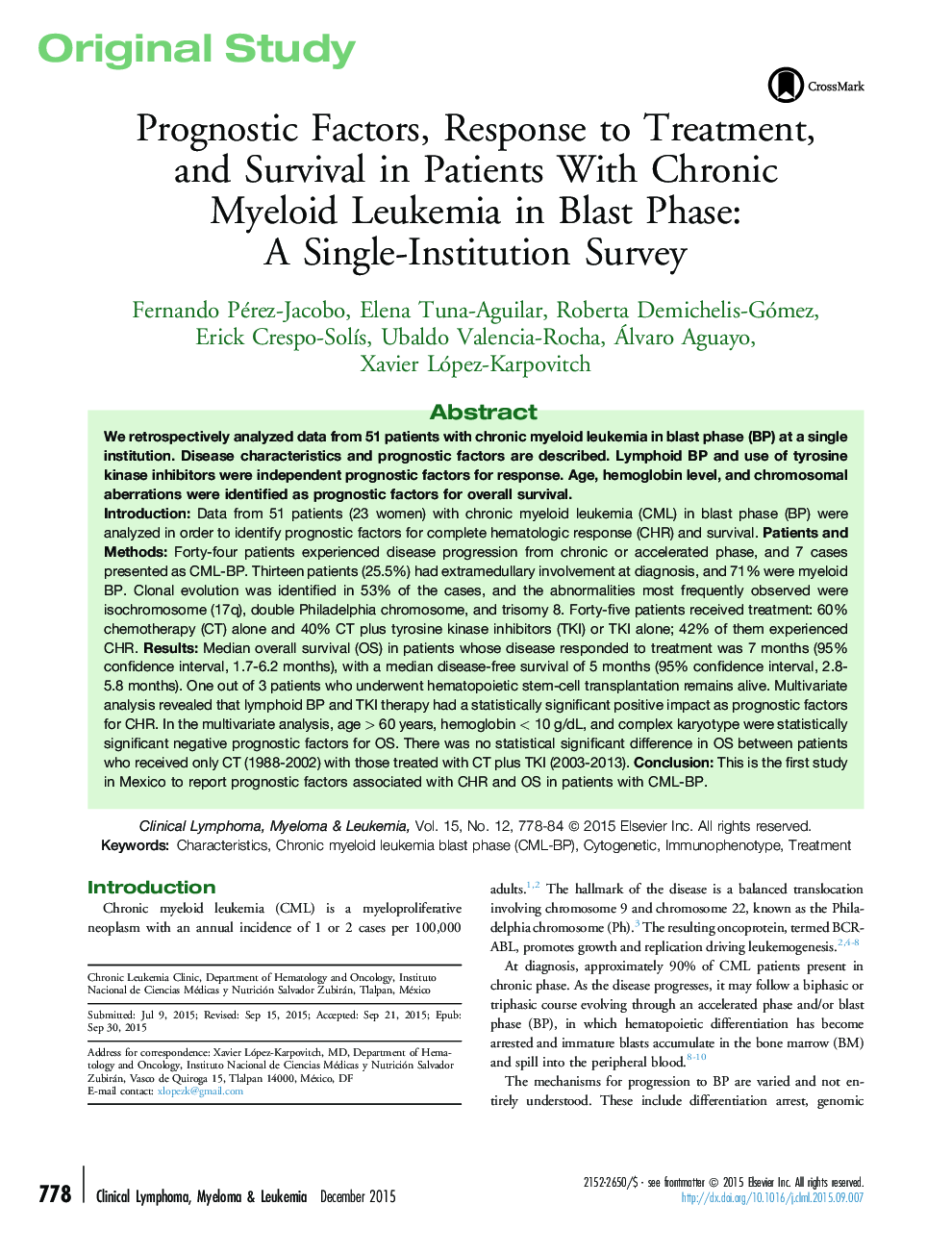| Article ID | Journal | Published Year | Pages | File Type |
|---|---|---|---|---|
| 2754312 | Clinical Lymphoma Myeloma and Leukemia | 2015 | 7 Pages |
IntroductionData from 51 patients (23 women) with chronic myeloid leukemia (CML) in blast phase (BP) were analyzed in order to identify prognostic factors for complete hematologic response (CHR) and survival.Patients and MethodsForty-four patients experienced disease progression from chronic or accelerated phase, and 7 cases presented as CML-BP. Thirteen patients (25.5%) had extramedullary involvement at diagnosis, and 71% were myeloid BP. Clonal evolution was identified in 53% of the cases, and the abnormalities most frequently observed were isochromosome (17q), double Philadelphia chromosome, and trisomy 8. Forty-five patients received treatment: 60% chemotherapy (CT) alone and 40% CT plus tyrosine kinase inhibitors (TKI) or TKI alone; 42% of them experienced CHR.ResultsMedian overall survival (OS) in patients whose disease responded to treatment was 7 months (95% confidence interval, 1.7-6.2 months), with a median disease-free survival of 5 months (95% confidence interval, 2.8-5.8 months). One out of 3 patients who underwent hematopoietic stem-cell transplantation remains alive. Multivariate analysis revealed that lymphoid BP and TKI therapy had a statistically significant positive impact as prognostic factors for CHR. In the multivariate analysis, age > 60 years, hemoglobin < 10 g/dL, and complex karyotype were statistically significant negative prognostic factors for OS. There was no statistical significant difference in OS between patients who received only CT (1988-2002) with those treated with CT plus TKI (2003-2013).ConclusionThis is the first study in Mexico to report prognostic factors associated with CHR and OS in patients with CML-BP.
